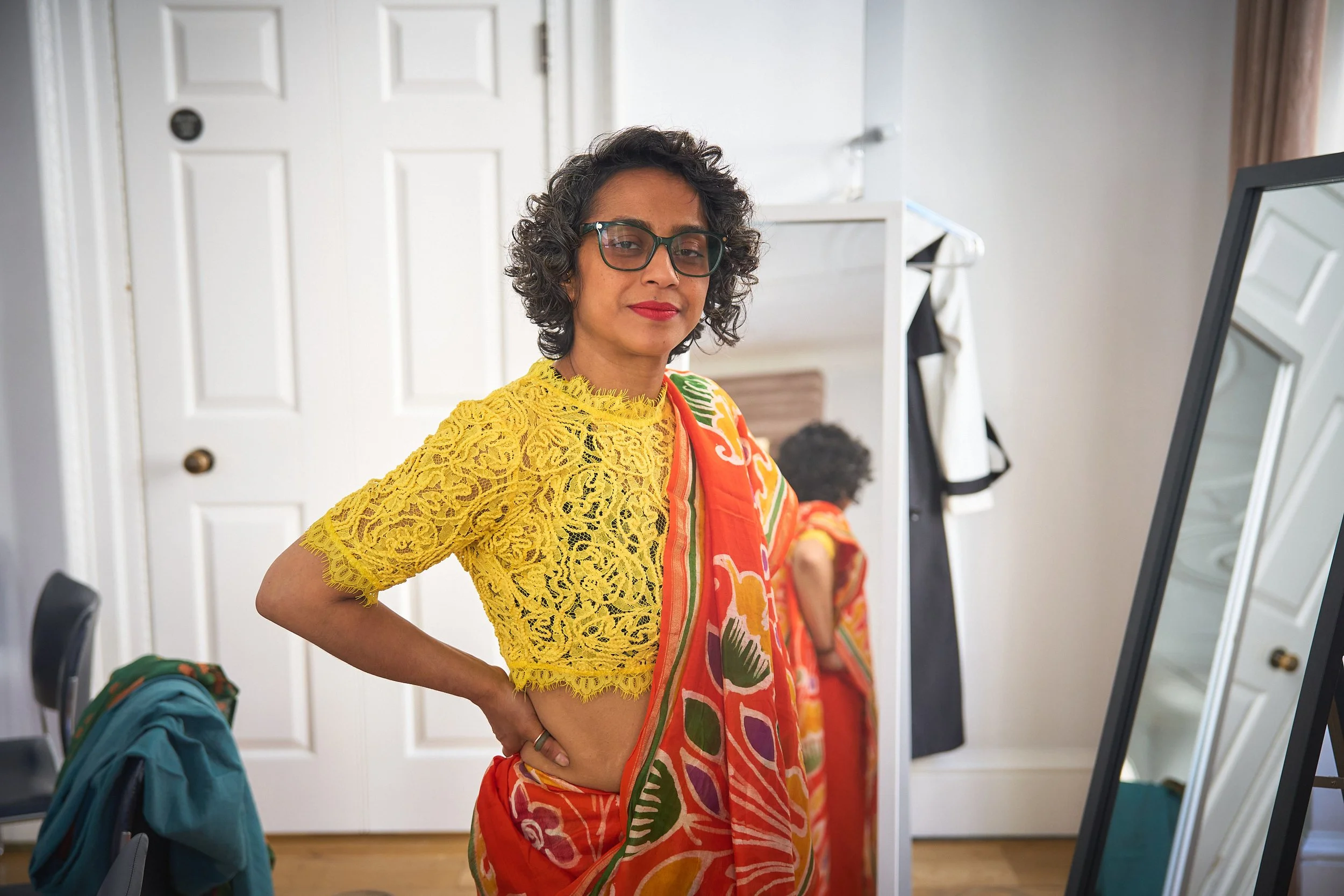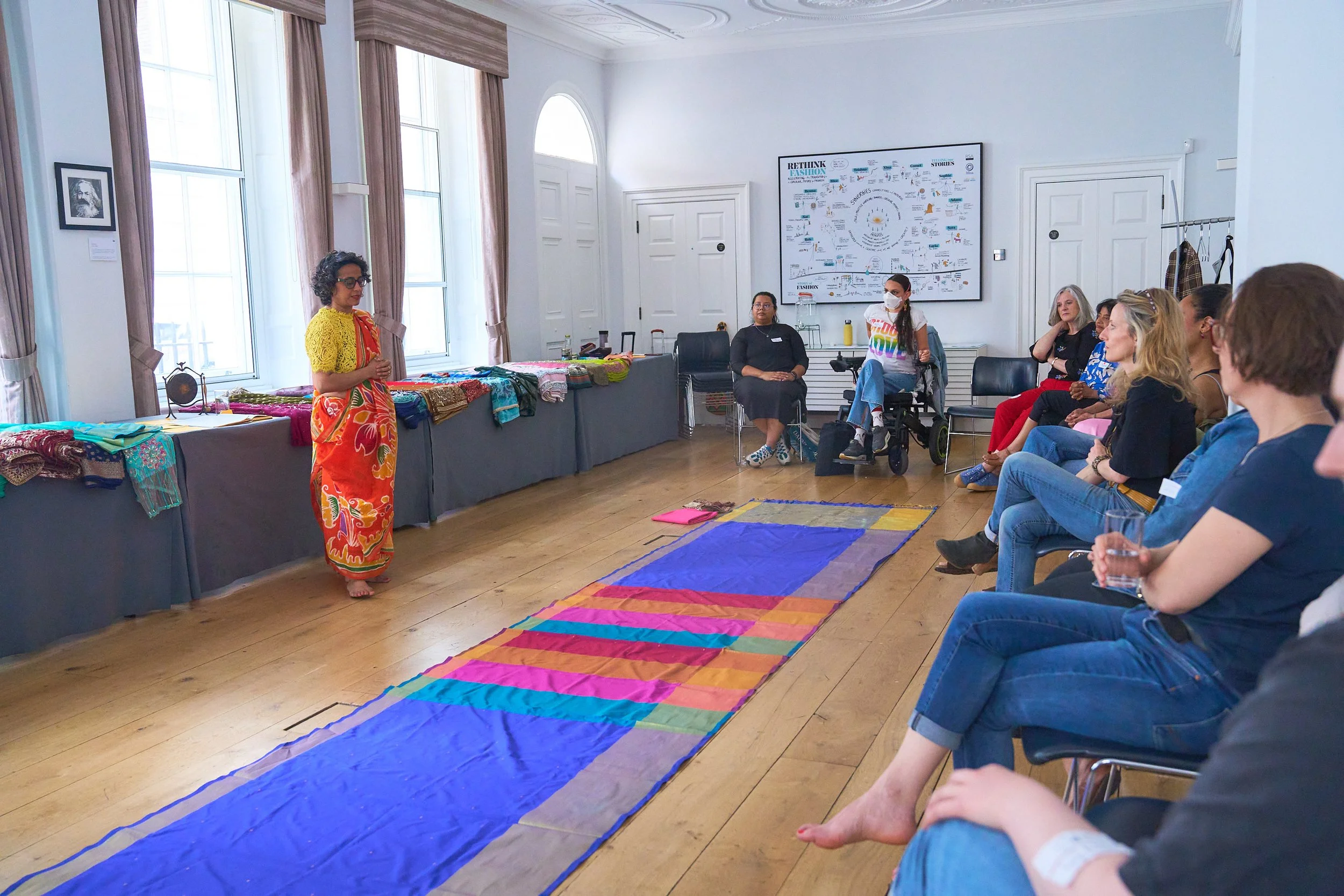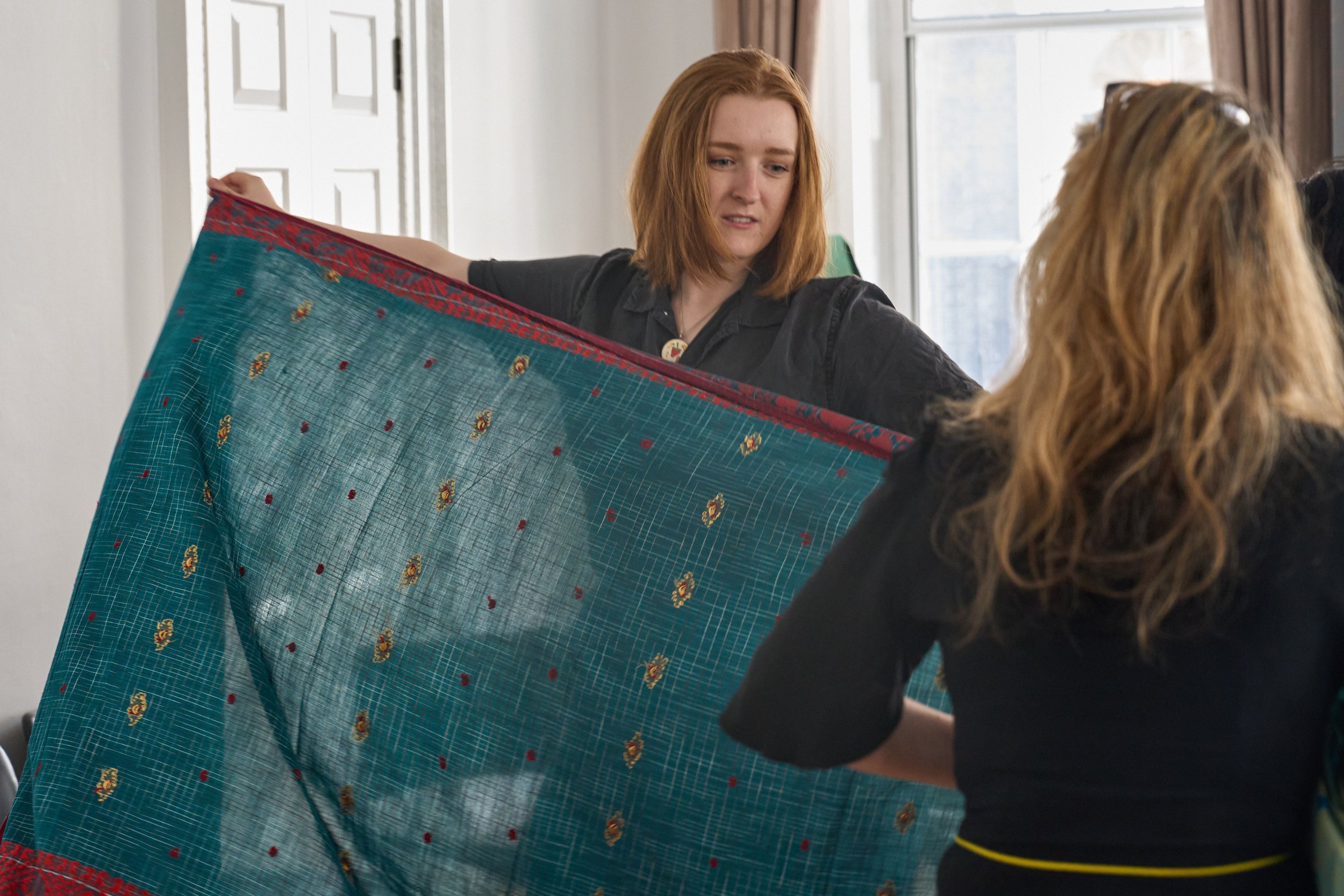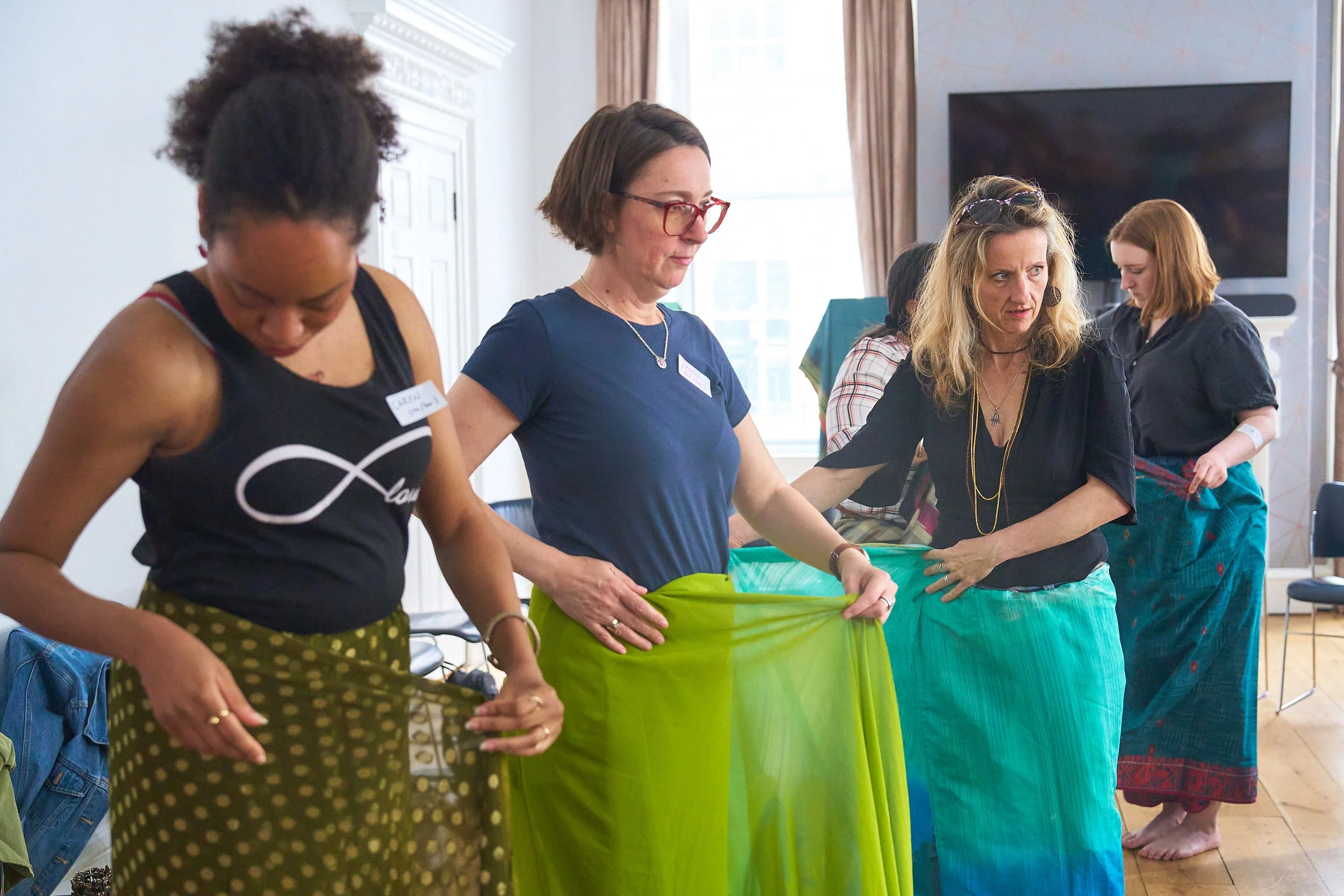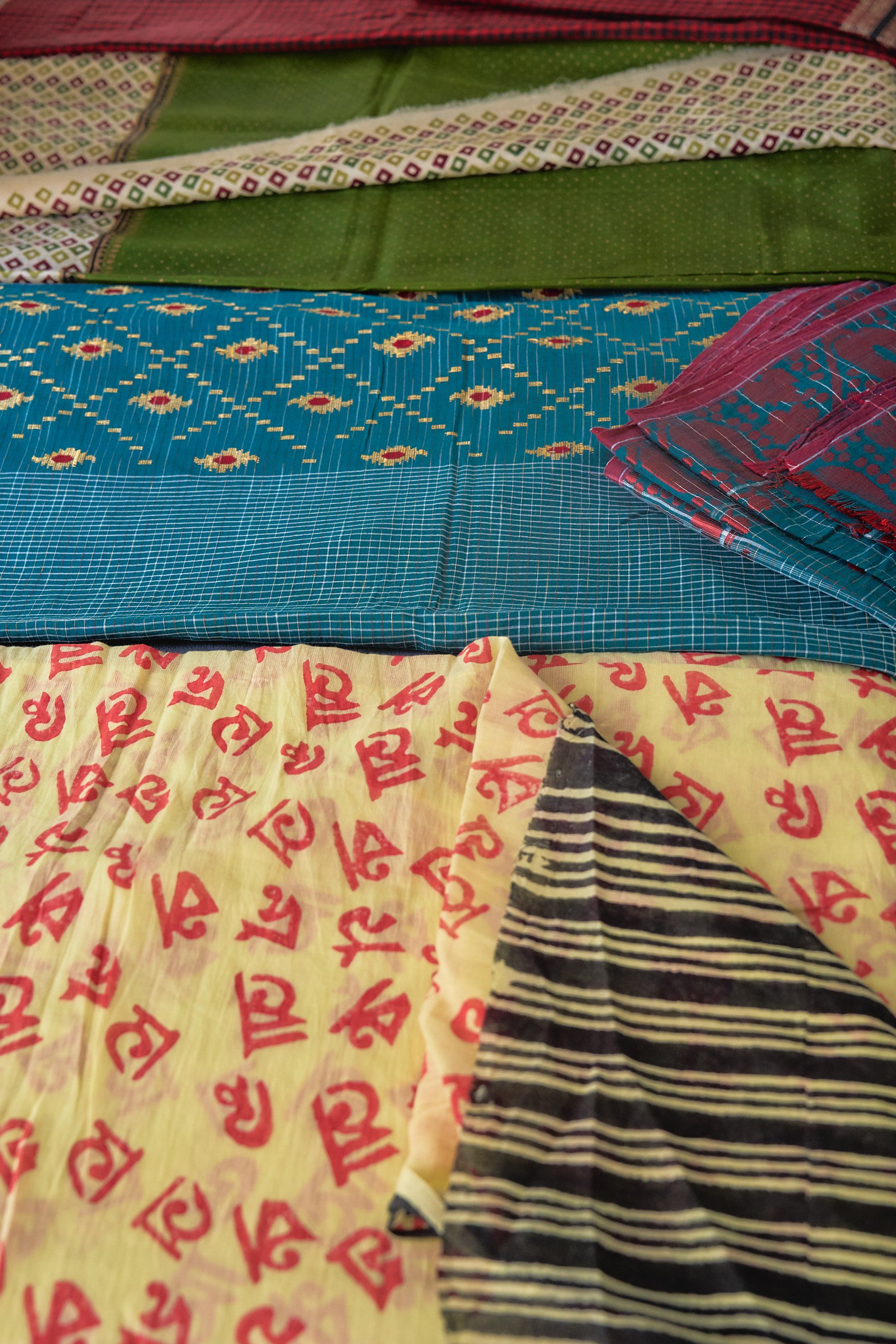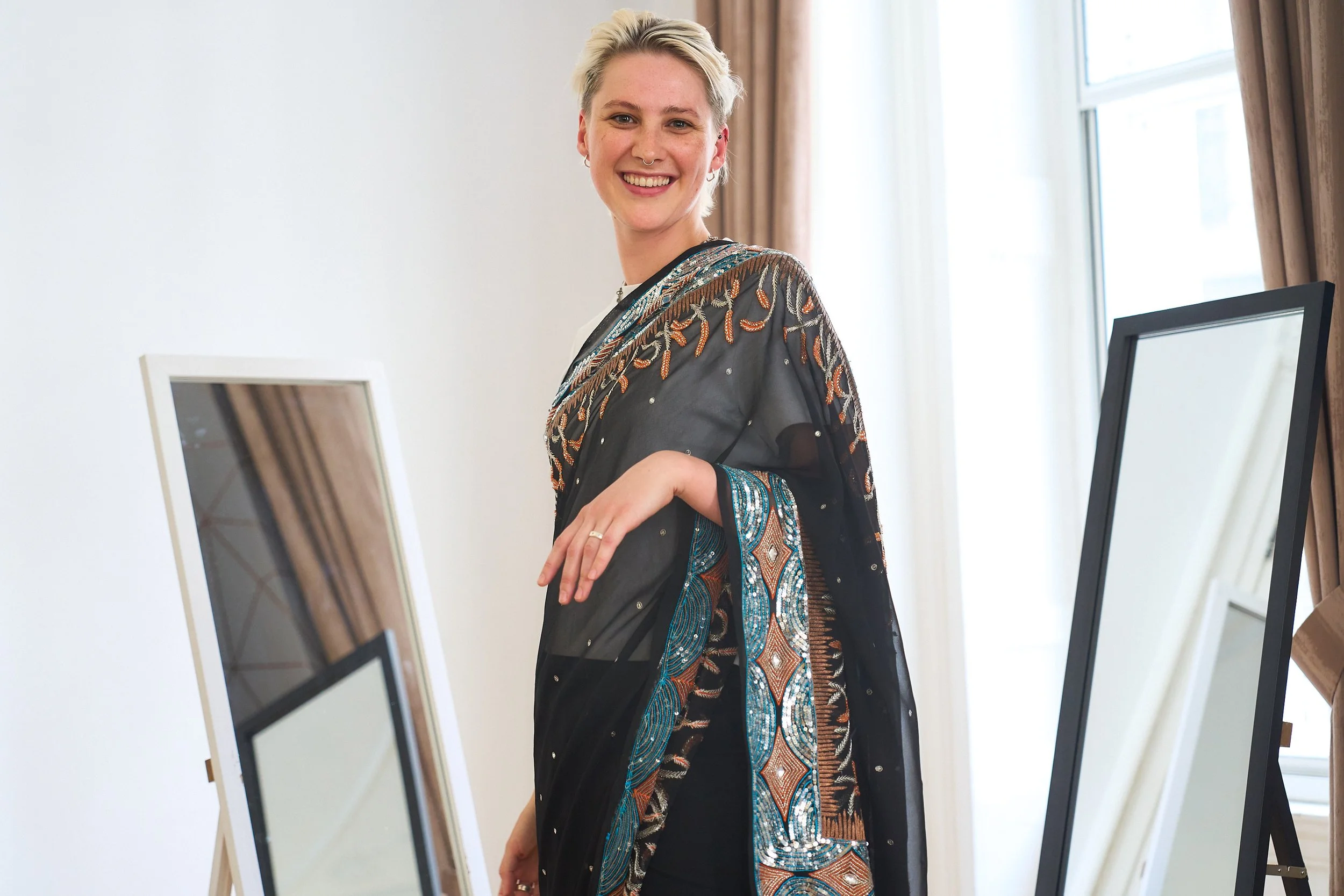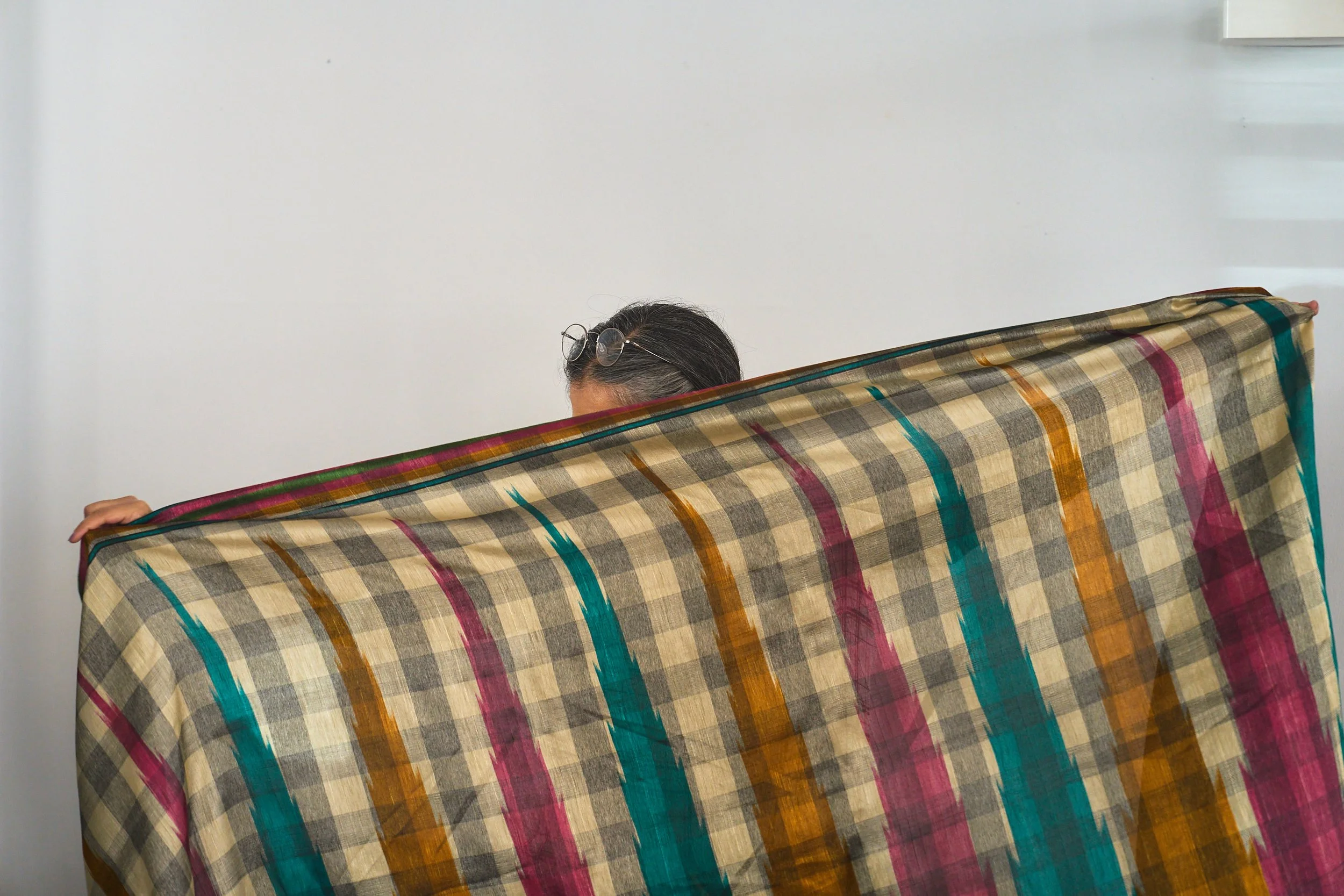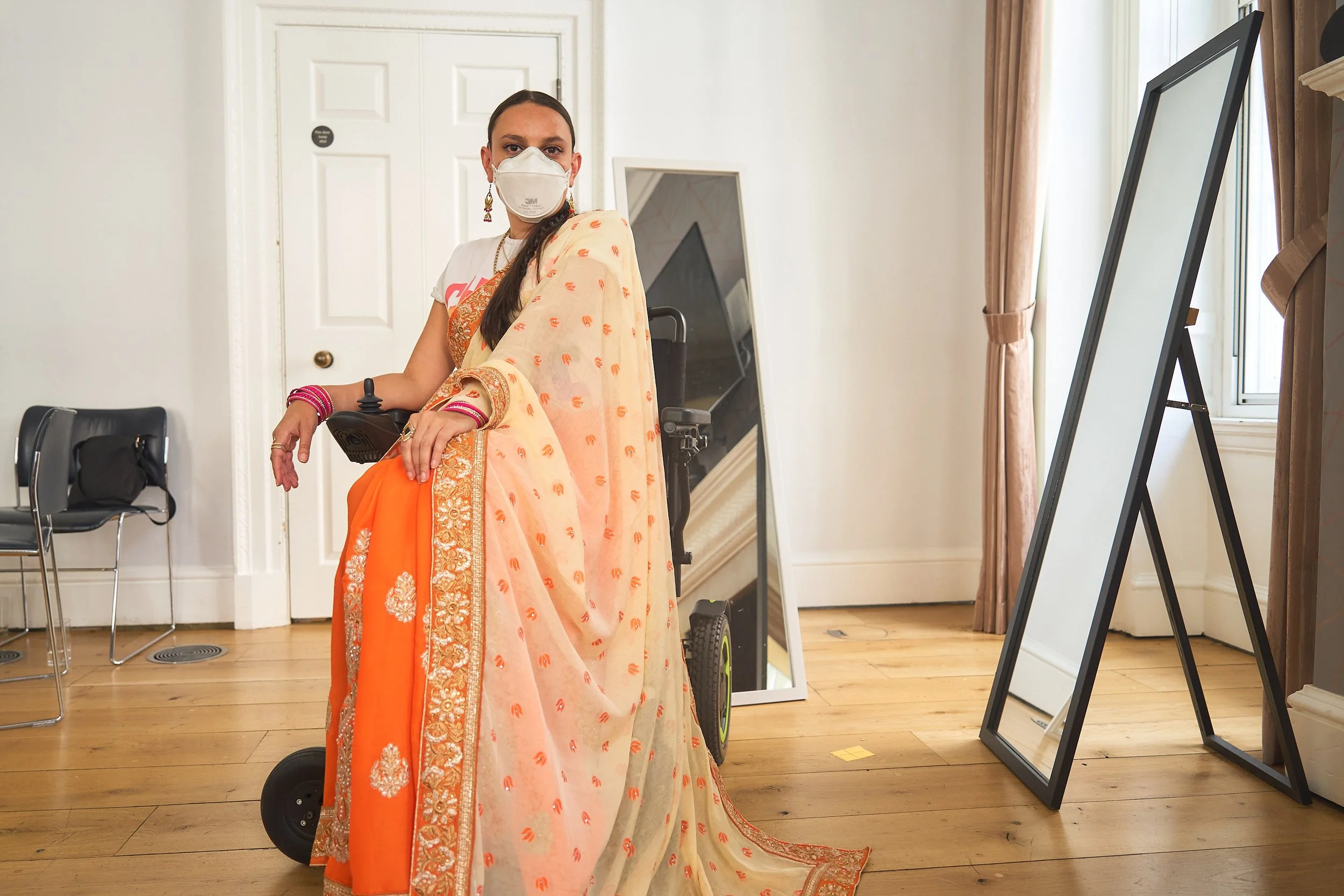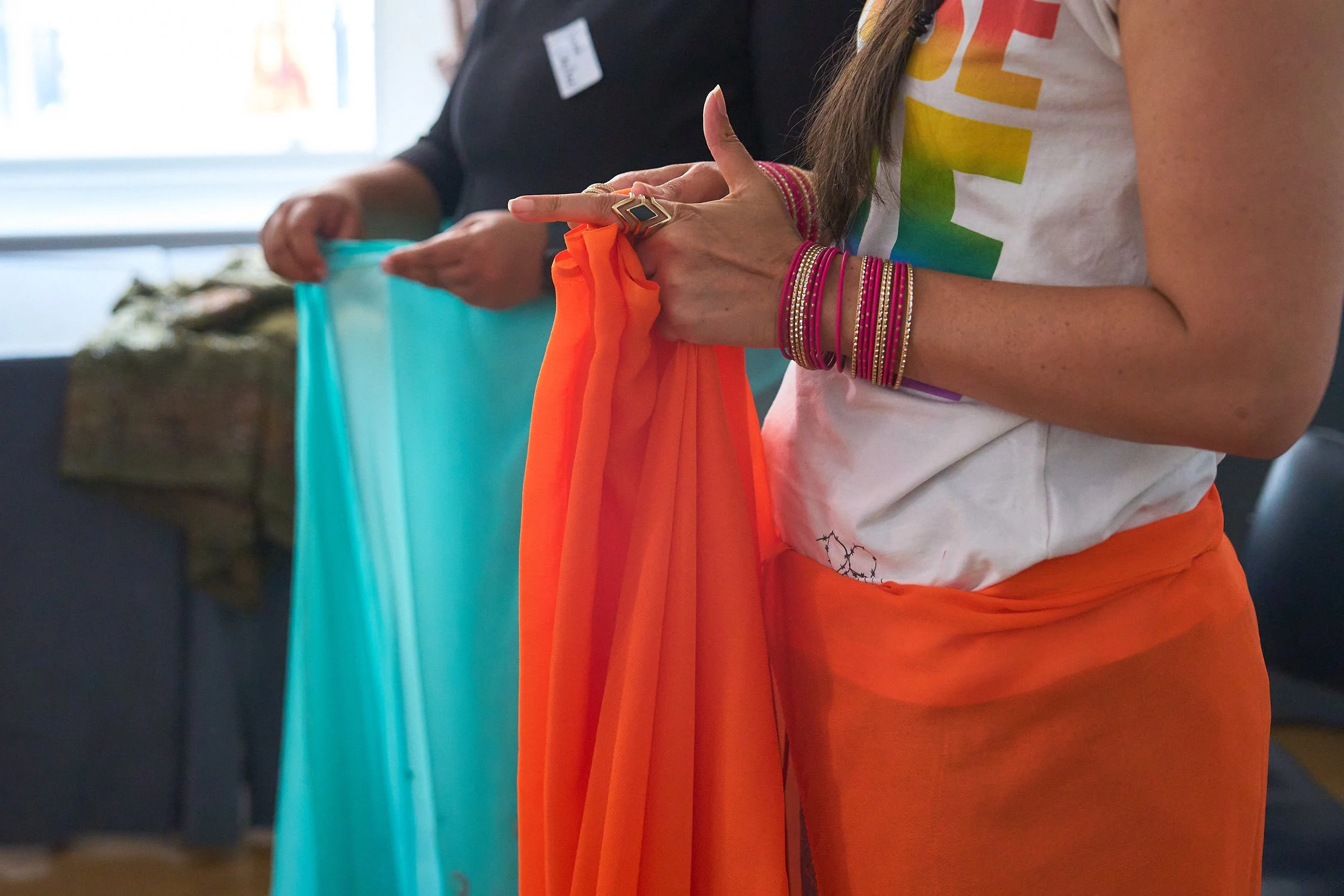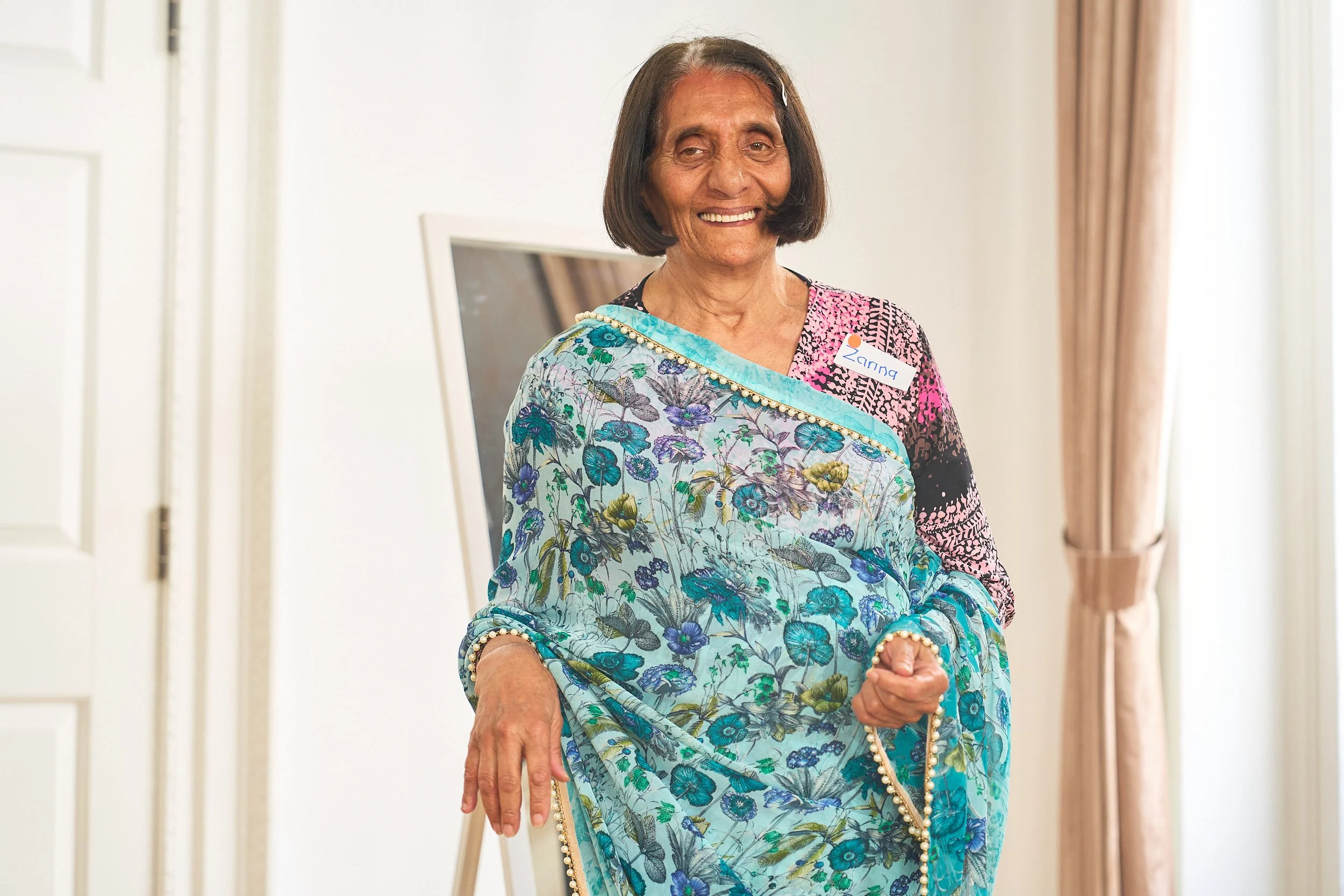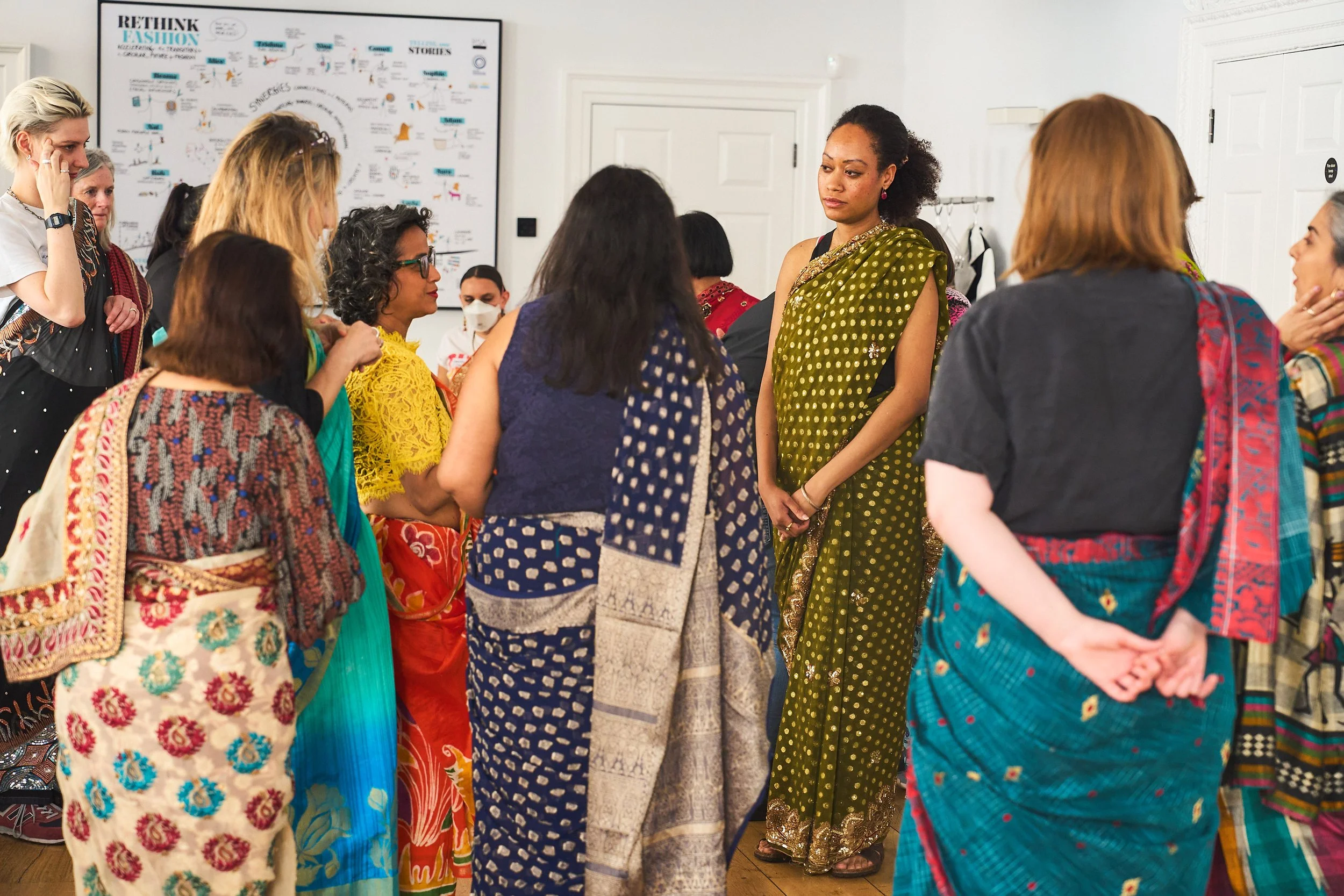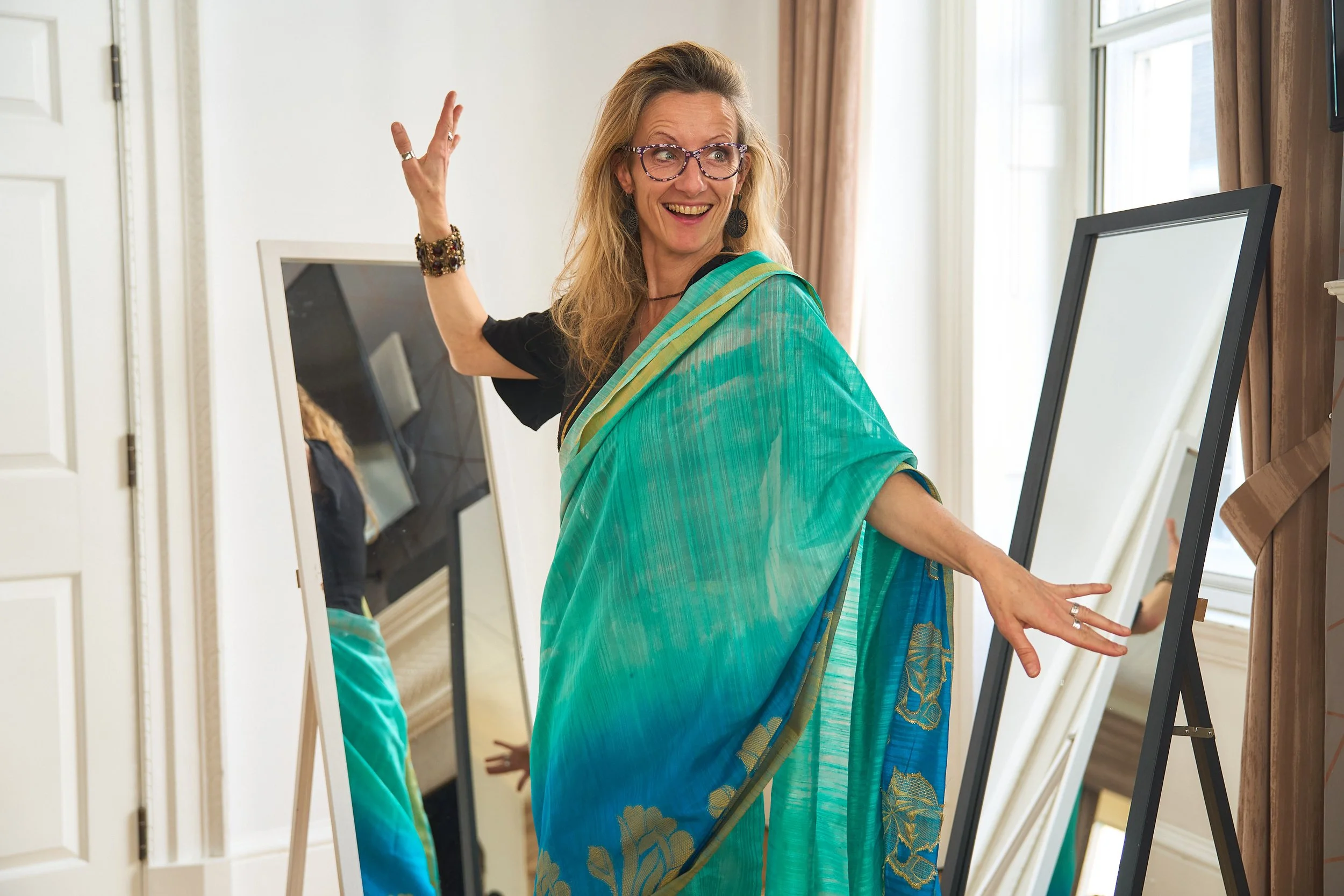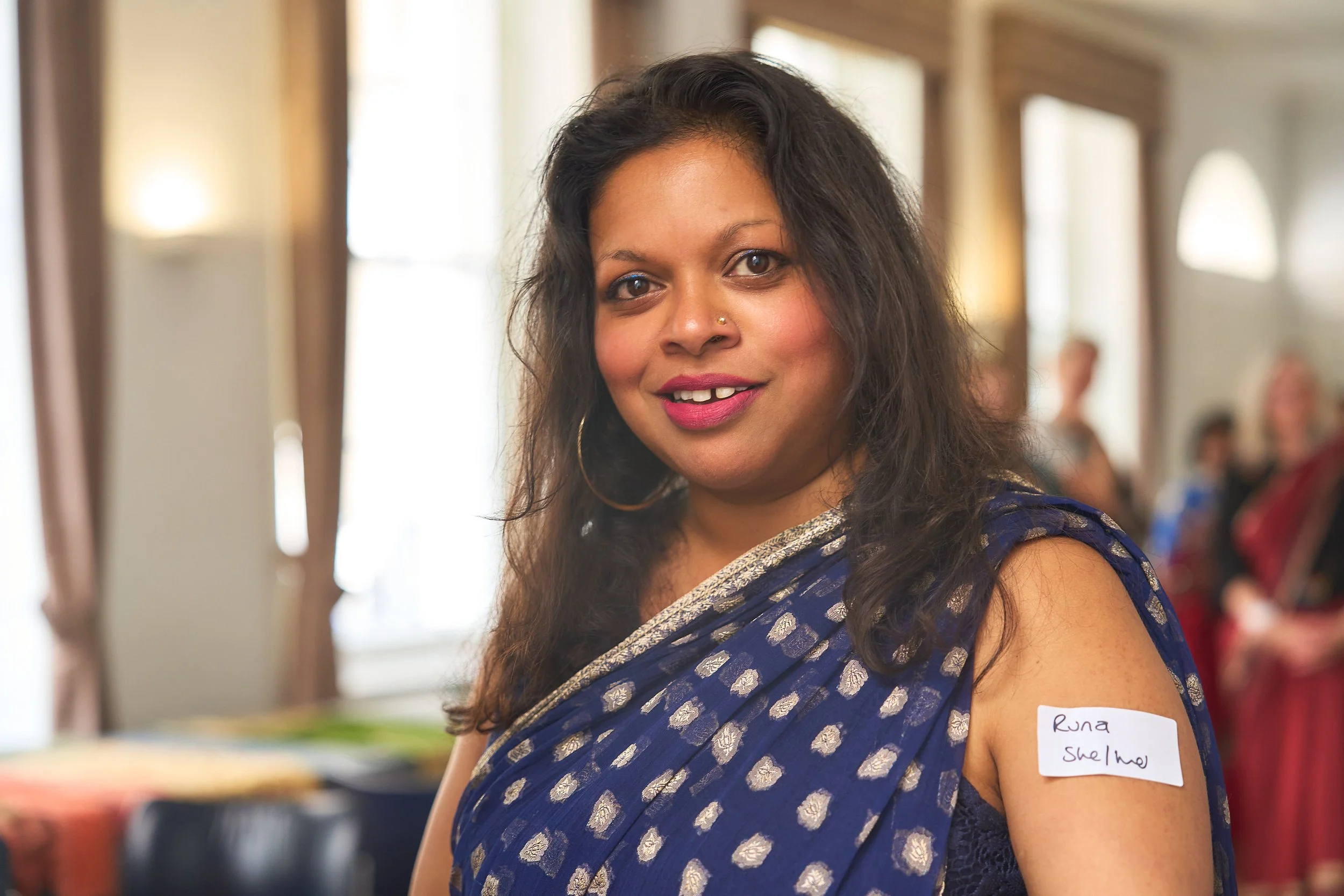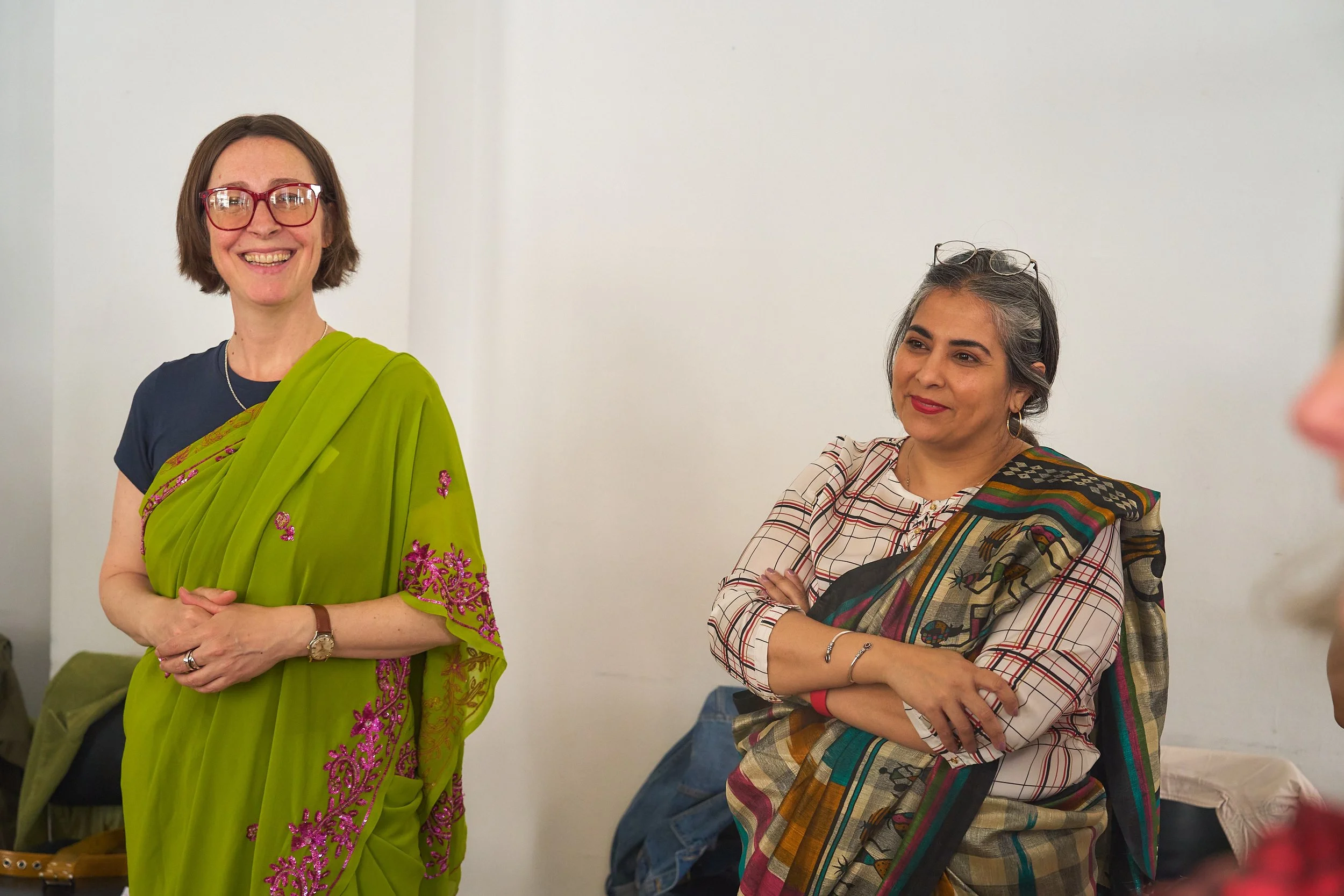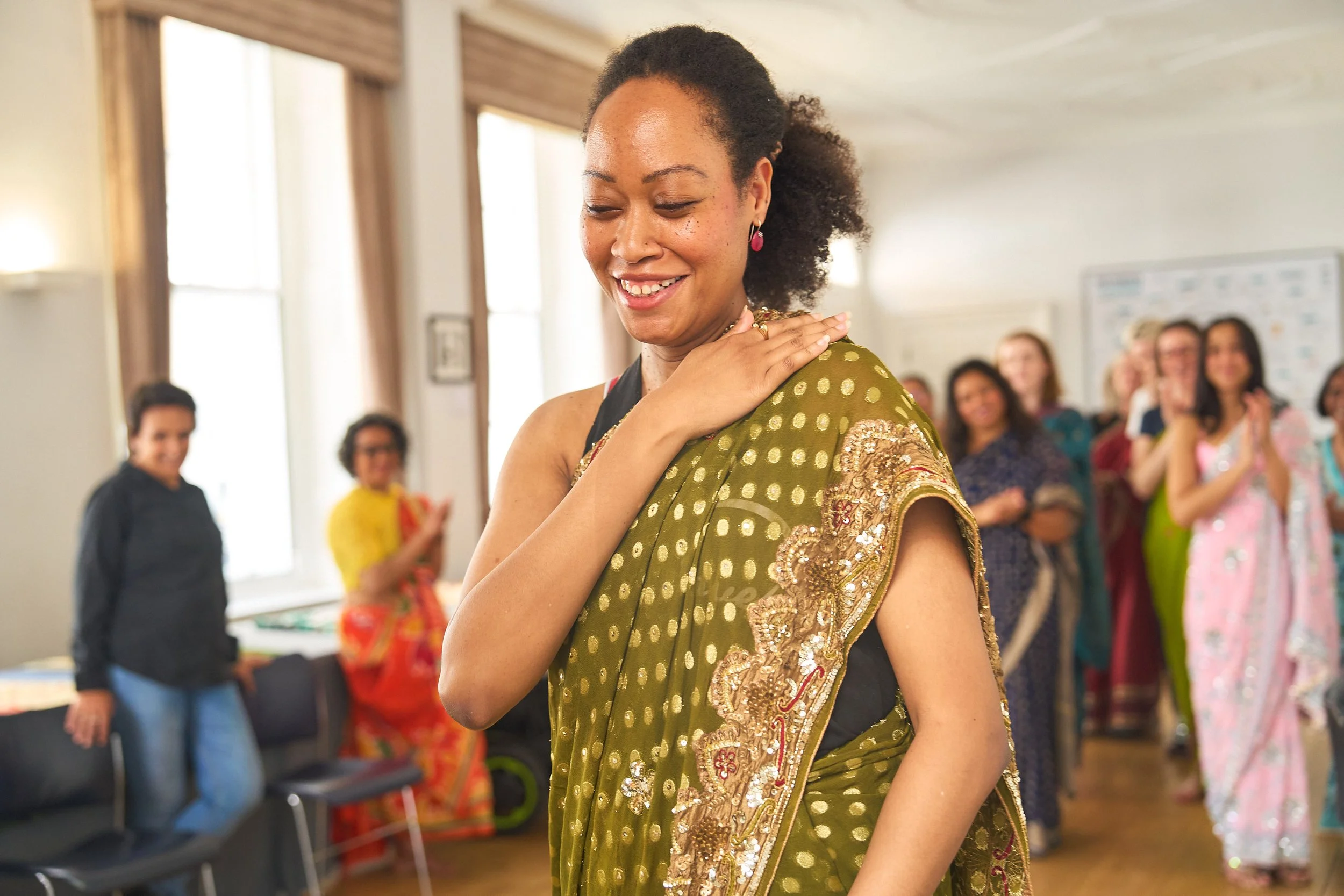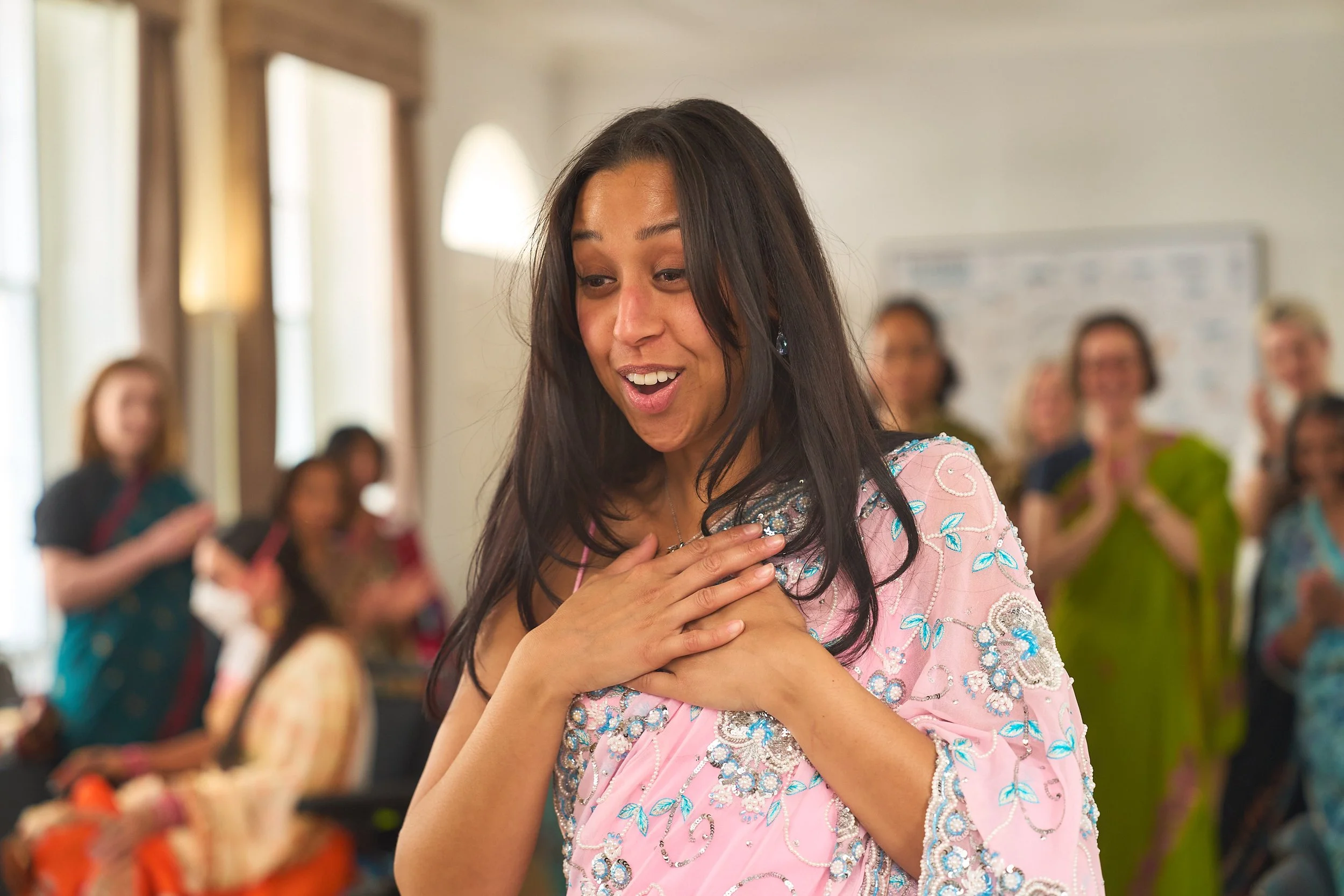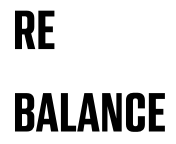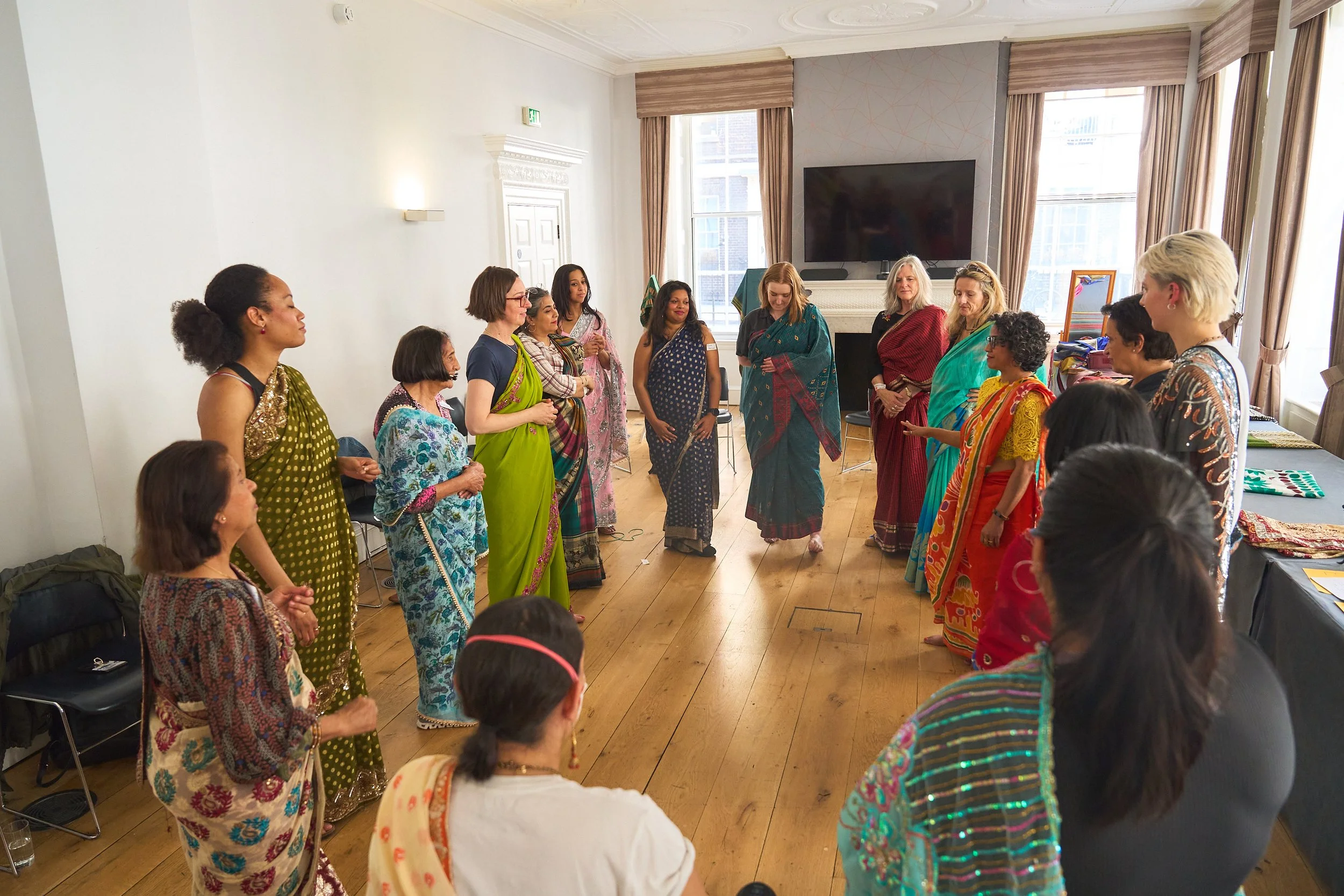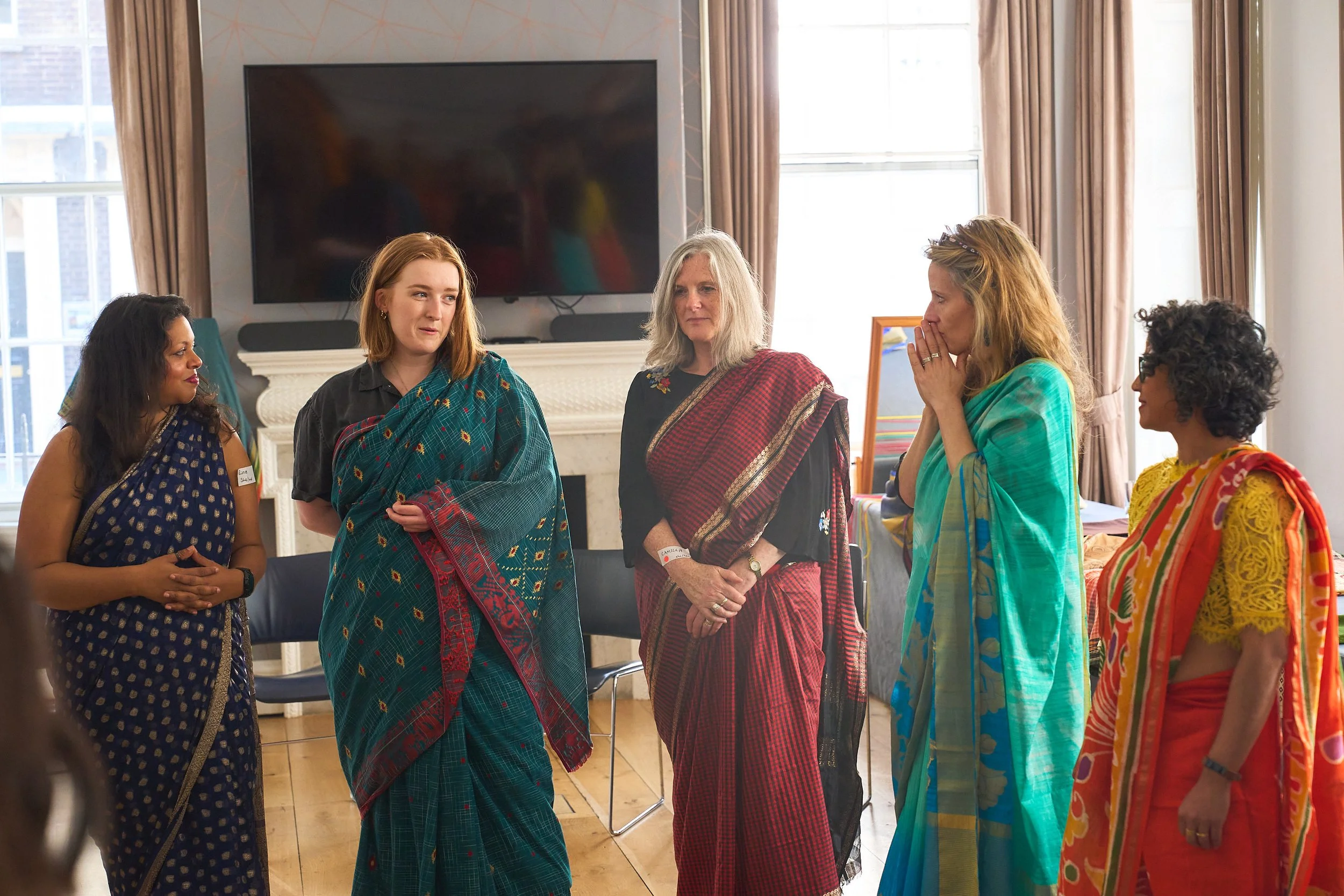RSA House
Our first Funshop in London was held on the 19th June 2024 at RSA House; The home of the Royal Society for the Encouragement of Arts, Manufactures and Commerce.
The RSA have long championed creativity and openness, making RSA House a perfect setting for an evening of fun and letting our imaginations run free.
Snapshot…
The Funshop
The event was attended by people from an array of backgrounds. Some people recognised the saree as a symbol of their roots and heritage, whilst for others, the Funshop was their first experience of draping up. Although people’s connection to the saree differed, there was no sense of inequality within the group. We invite people to bring their own experiences and perspectives and have no expectation of our participants to come with prior knowledge. The Funshops are about learning together and connecting in varied and meaningful ways - no two Funshop experiences are the same.
There was a real warmth to the evening and the atmosphere felt friendly and familiar. Everybody gathered in a circle for a discussion about the saree and self-expression, which naturally flowed into conversations and stories about childhood, identity, longing for home, and understanding yourself through different phases of life. The conversations felt cathartic and reminiscent of catching up with old friends. Nearly all participants reflected that they felt “welcomed”, “connected”, “included”, and "happy".
The instructor, Poppy, demonstrated how to drape the nivi drape on herself, and then it was the participant’s turn to try and drape it on themselves. The attendees moved at their own pace and helped each other with pleating and draping. It was a real communal activity accompanied by the sounds of laughter.
The group considered how it felt to drape up and wear the saree, without looking in the mirror. We thought about the importance of dressing up and how we feel in our clothes, before thinking about how we look in them. This was both an emotional and empowering moment for the group, allowing everyone to re-engage with their inner child and escape outside opinions for a moment.
This was followed by a mirror reveal moment; everyone who wanted to had the opportunity to see themselves in a full-length mirror, with the rest of the group championing them from the sides. It was so special to see how fabulous everyone felt in their sarees and that they wanted to share the feeling with others. Of course, there was ample time for posing and pictures!
There were a wide array of responses to the feeling of wearing a saree. Some people shared that wearing a saree made them feel “sexy”, “like a rockstar”, and even “regal and powerful”. Others felt a deep connection to their cultures and to the women around them. One person shared that the experience allowed them to feel “connected to their Indian side” and another person confided that it had been a long time since she had worn a saree and it felt good to relearn how to wear one.
The Funshop made me feel…
“Welcomed, beautiful, and part of community”
“Empowered and emotionally connected to my Indian side”
“It was perfect. It was good to see every participant get the chance to wear a saree and enjoy it”
“I wouldn’t change a thing, it was epic!!”
Cultural Appropriation
It gives us a sense of pride to share the art of saree draping with people from all cultural backgrounds, whether that means introducing pleats and knots to someone who has never seen a saree before, or helping someone of South Asian heritage feel confident in a garment connecting them to their culture.
The question of cultural appropriation often comes up within our group discussions, including this Funshop. Some Non South-Asian participants expressed hesitance about wearing the saree because they did not want to infringe upon or disrespect a culture that they do not belong to.
Our stance has always been that there is a huge difference between cultural appreciation vs appropriation. Our Funshops are about appreciation, wherein people who are unfamiliar with the culture that sarees emerge from can learn about the history, craftsmanship, and issues that are associated with the garment. They can interact with sarees respectfully as opposed to appropriating the saree; which involves using the garment for personal gain without acknowledgement of its meaning or roots.
We at SareeNaSorry think that there is a greater risk in not sharing the art of draping in fear of cultural appropriation because it would mean losing the art of draping. We recognise that there is a long way to go to address systemic inequalities and prejudices that can result in appropriation. Through designing our saree Funshops to be an open space where everybody is welcome, we hope to encourage cultural appreciation which can go some way in healing cultural divides.
